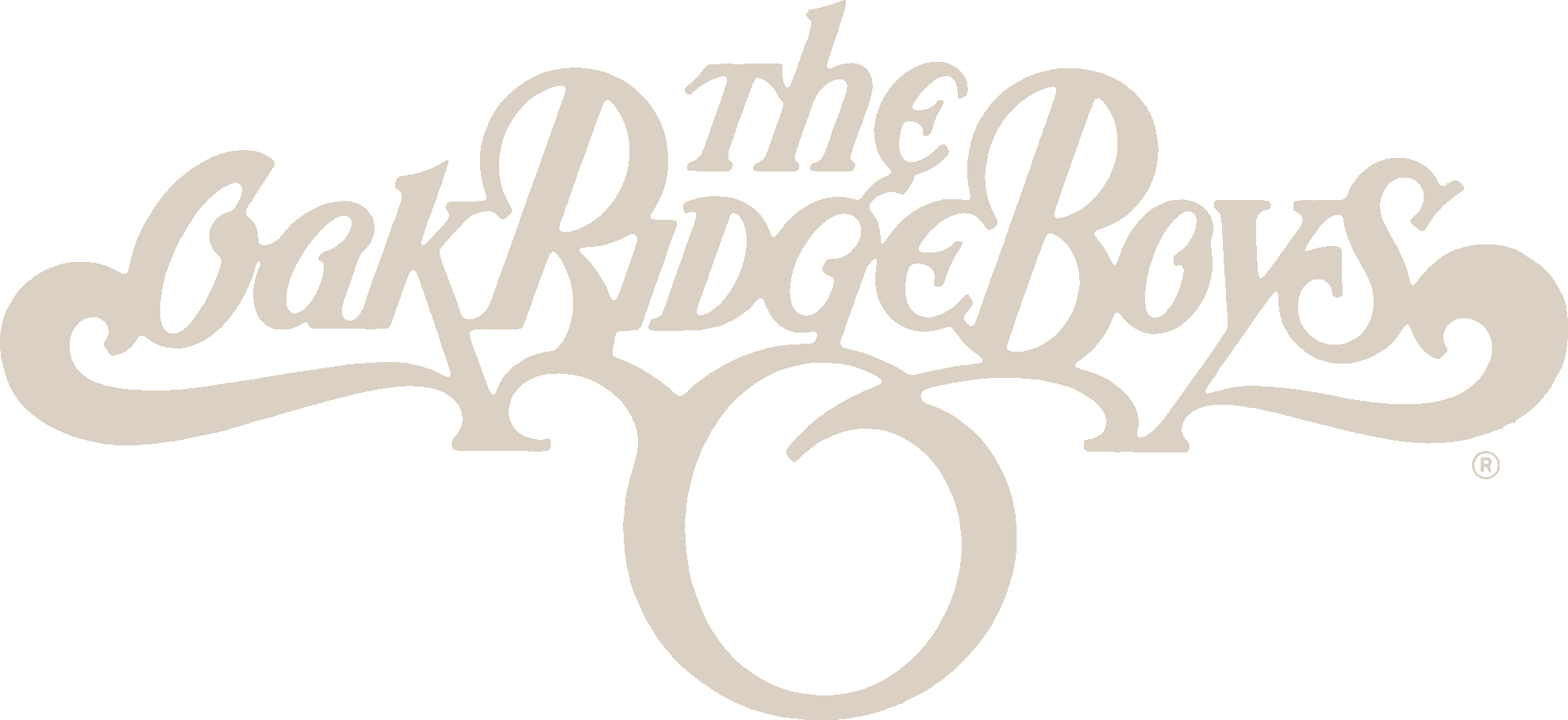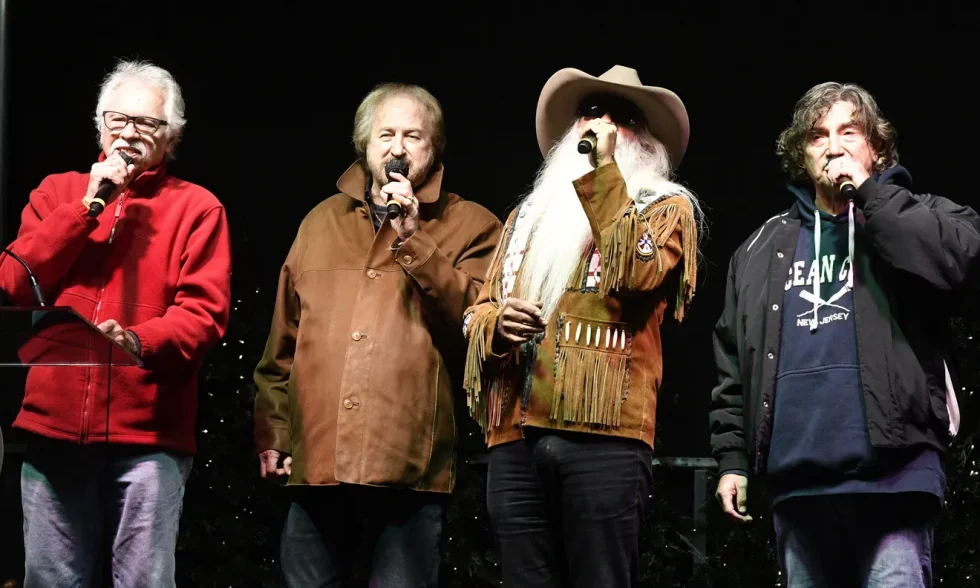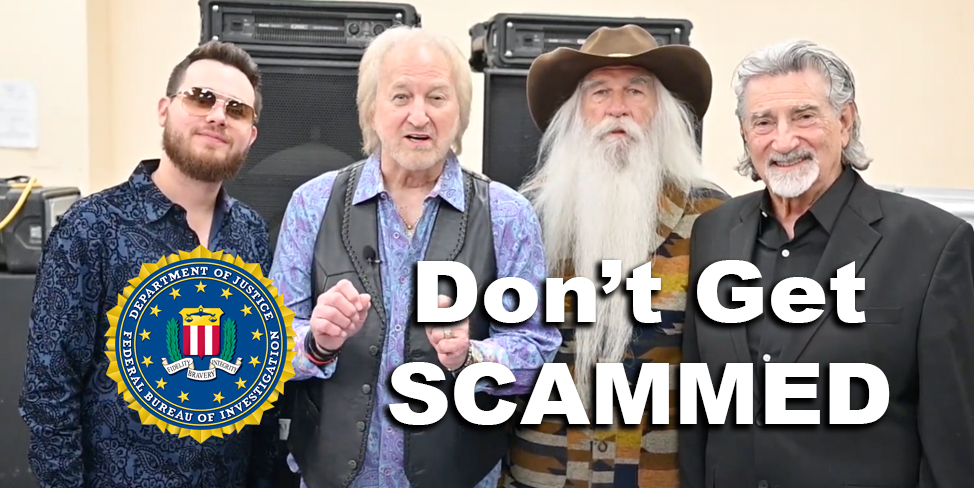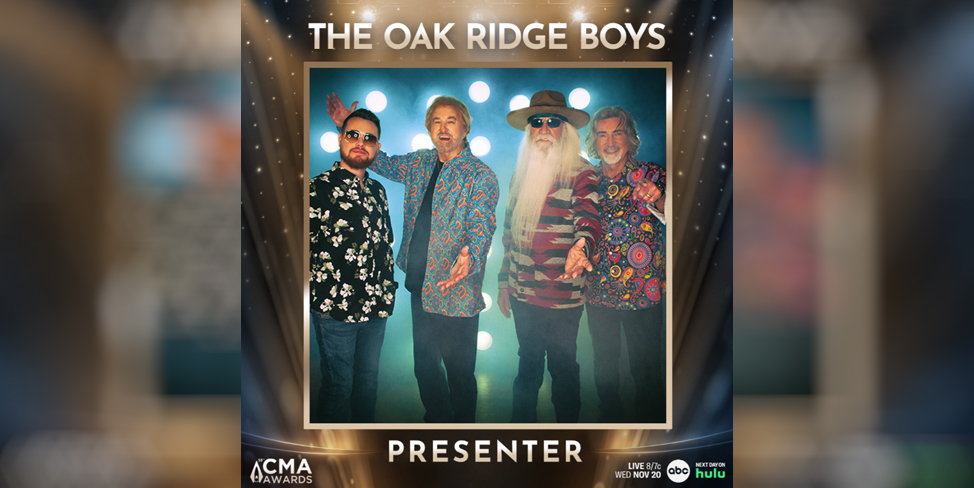On the 50th anniversary of Joe Bonsall and Richard Sterban with the long-standing country and gospel vocal act, the group discusses their longevity
Outside of members of the Carter family still releasing music, there may be no more remarkable country music legacy than that of the Oak Ridge Boys. The vocal quartet’s roots date to recording gospel music in Oak Ridge, Tennessee, in 1945.
2023 will find the current iteration of the group – Duane Allen, Joe Bonsall, William Lee Golden and Richard Sterban – celebrating more than four decades together. Gathered at the Grand Ole Opry to celebrate the 50th anniversary of Joe Bonsall and Richard Sterban’s time with the act, the quartet excitedly discussed their fundamental relationship to country music and the value of their legacy.
The foursome also will be performing for the next month at the Gaylord Opryland Resort & Convention Center for their annual “Christmas In Tennessee” Dinner Show. Tickets to see the Grammy-winning Opry members and Country Music Hall of Famers’ 120-minute, family-friendly concert from Nov. 23-Dec. 25 are $49.99-$94.99 and available via the Gaylord Opryland website at www.tickets.gaylordopryland.com.
Bonsall quickly offers to The Tennessean that it’s the magic of the harmonies that define the gospel-to-country-meets-rock “musical brotherhood” comprised of two Northerners (Bonsall’s from Philadelphia, Sterban from Camden, New Jersey) and two Southerners (Allen from Taylor Town, Texas, Golden with roots in Brewton, Alabama).
The Oaks’ unique ability to capitalize on the national-to-global boom at the intersection of gospel and rock and roll still unites them.
“When we walk on that stage, regardless of our differences, the fact that we share the proud history of being an Oak Ridge Boy is more important than anything else.”
THE ROAD TO ‘ELVIRA’ AND SUPERSTARDOM
Their mainstream crossover moment via the 1981 smash “Elvira” is related to a longer story about crafting an image, sound and style with the broadest possible appeal.
For 35 years, The Oak Ridge Boys achieved excellence as a Southern gospel quartet with soulful leanings. However, by the mid-1970s, country music’s crossover mainstream popularity allowed for a space for its top-tier acts to invite performers more familiar with the genre’s roots onto stages and into acclaim.
By that era, The Oak Ridge Boys, clad in suits from Hollywood fashion designer Harvey Krantz and boosted by the act’s then-pianist Garland Craft began to place emphasis on “entertainment” over preaching to create a mainstream pop-ready, GQ-style cosmopolitan country act. Via this shift, they were able to be favored as touring support for acts including Roy Clark and Kenny Rogers.
Before being recorded for the Oak Ridge Boys’ album “Fancy Free,” “Elvira” was a cannily crafted country song with a longstanding tradition.
As well as being one of the most renowned country music songwriters in history, Oklahoma-born and Bakersfield, California-raised Dallas Frazier was the writer of the Hollywood Argyles’ 1957-released baritone and bass-heavy R&B prototype pop hit “Alley Oop.” A decade later, he was based in Nashville and wrote “Elvira,” which hit the back end of the Billboard Hot 100. It was covered in the 1970s by Kenny Rogers and the First Edition and Rodney Crowell.
Allen recalls hearing “Elvira” in 1966 when Frazier played it on Nashville’s WSM radio.
“I heard it once and never forgot it,” he says. “That’s when you know a song is a hit.”
Fifteen years later, while producing the track, MCA Records Nashville A&R Ron Chancey had an idea. He asked Oak Ridge Boys member Richard Sterban – who had previously sung bass on tour with Elvis Presley as a member of J.D. Sumner and The Stamps – to sing a bassline part as “oom papa oom papa oom papa mow mow.”
The reason speaks to the incredible staying power of the act’s marketability.
“We wanted ‘Elvira’ to be a summer record for families of four – two kids, a mother and a father – on vacation in an automobile, listening to the radio,” says Allen. “Mom’s singing the verses, the kids sing the ‘giddy up’ hook, and dad comes in with the ‘oom papa’ chorus. It’s the best planning we ever did.”
For Sterban, the legacy of his iconic vocal appears when the Oak Ridge Boys play current live gigs and he sees a crowd full of men leaning over to their wives singing to them.
“Just a week ago, there was a guy in the front row all ‘oom papa mow mow’ in his wife’s ear,” jokes Bonsall.
ACHIEVING AND PRESERVING THE OAK RIDGE BOYS’ LEGACY
In 2022, the Oak Ridge Boys are older and may not retain what many classic country fans remember of their presentation from their days of peak stardom. However, William Lee Golden still has his now iconic – and also snow white – beard that extends from his chin to his waist while seated and speaking to The Tennessean at the Grand Ole Opry’s Studio A.
Golden describes being “clean cut” or maintaining a five o’clock shadow until the group’s run of 14 Top 10 Billboard Country chart singles began with 1977’s “Y’all Come Back Saloon.” By 1982, the group took a break after achieving greater success. Golden decided to go camping with “some scruffier-looking guys,” which precipitated him not trimming his beard. Months later, he began to look in the mirror and was “startled” by the man he saw looking back.
By that era, their GQ look with an added rustic flair led to a robust touring schedule plus myriad TV appearances, including “The Tonight Show” with Johnny Carson, plus specials with Jerry Lee Lewis, Loretta Lynn, Minnie Pearl and Rogers.
Allen adds that touring with Rogers while he was experiencing the peak of his mainstream pop moment aided in how the Oak Ridge Boys ensured the endurance of their success.
“Kenny didn’t just teach us about concerts. He taught us how and when to release records, how to work them on radio, how to work with the label so that the records could perform well and when we needed to release records, too.”
In 1989, the Oak Ridge Boys had two Christmas albums out simultaneously. They opened for Rogers at Los Angeles’ Universal Ampitheater alongside a then-rising country star with a No. 1 single on his debut album: Garth Brooks.
The Oak Ridge Boys are speaking to The Tennessean in 2022 as they prepare for their third consecutive Christmas show residency at Gaylord Opryland Resort & Convention Center.
Three decades later, Rogers’ lessons are still paying impressive dividends.
“From eight-track players to streaming, we’ve been passed down from generation to generation like an old shirt,” Bonsall jokes. “Families that love country music – from grandfathers to fathers, to sons – all love the Oak Ridge Boys.”
FAITH AND THE FUTURE
In 1978, at the “World’s Largest Indoor Country Music Show” – broadcast on NBC from Detroit’s Pontiac Silverdome, the Oak Ridge boys appeared alongside Rogers, Pearl, Dottie West and numerous others.
They sang hits like “Y’All Come Back Saloon” alongside traditional gospel fare like Cleavant Derricks’ “Just A Little Talk With Jesus.”
“We’re out there in front of a national audience and 60,000 people running all over the stage singing country music and then we put that big gospel ending on it. It was a feeling like nothing else I’d felt to that point,” says Bonsall.
Four decades later, Sterban notes that the Oaks’ gospel roots are beloved by their current producer, Dave Cobb. Familiar for his work with the likes of Chris Stapleton, the renowned bass vocalist calls Cobb “the hottest producer in [Nashville].”
“We want him to open [the Oak Ridge Boys] up to some of the [newer] material he’s working on,” Sterban continues. “Dave tells us no every time because he says that nobody else that walks through the doors of RCA Studio A [the legendary space Cobb calls his production home] can do what you guys do with that gospel influence.”
When asked what allows the act to endure, Duane Allen offers a brief yet full note.
“We’re entertainers first, with a rock and roll attitude and energy,” Allen says. “We allow our fans to be good people while having a good time. People should feel better after seeing us than they did when they sat down at the start of our show. It’s all about entertainment, God and feeling good.”




